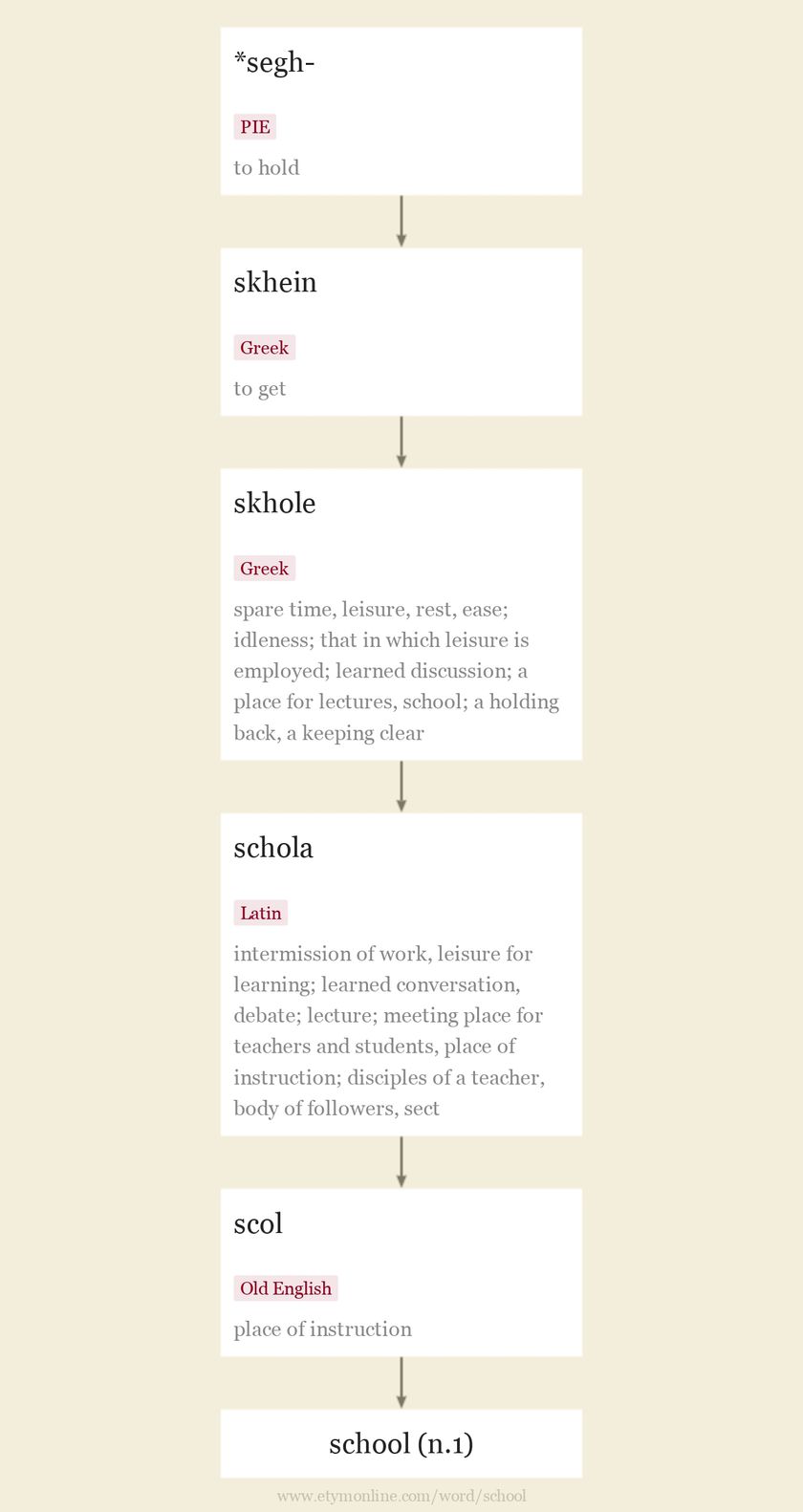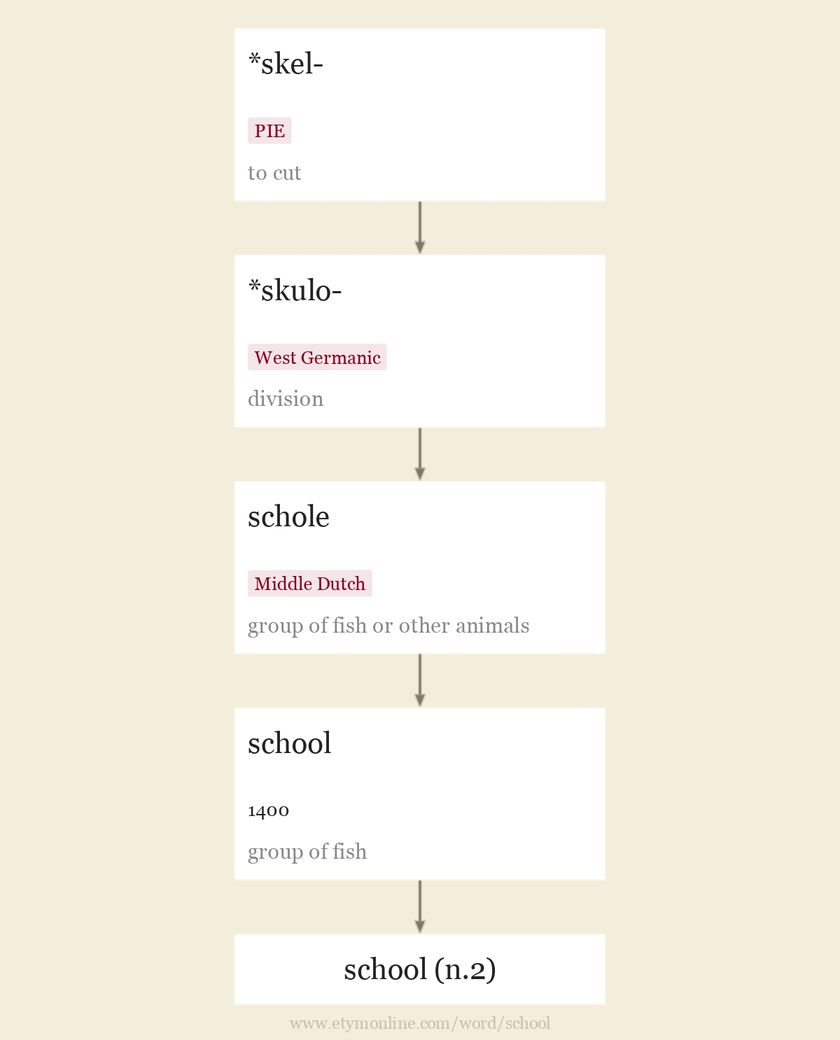school (n.1)
[place of instruction] Middle English scole, from Old English scol, "institution for instruction," from Latin schola "meeting place for teachers and students, place of instruction;" also "learned conversation, debate; lecture; disciples of a teacher, body of followers, sect," also in the older Greek sense of "intermission of work, leisure for learning."
This is from Greek skholē "spare time, leisure, rest, ease; idleness; that in which leisure is employed; learned discussion;" also "a place for lectures, school;" originally "a holding back, a keeping clear," from skhein "to get" (from PIE root *segh- "to hold") + -olē by analogy with bolē "a throw," stolē "outfit," etc.
The basic sense of the Greek word is "leisure," which passed to "otiose discussion" (in Athens or Rome, the favorite or proper use of free time), then it came to be used for the place for such discussion.
The Latin word was widely borrowed (in addition to Old French escole, French école, Spanish escuela, Italian scuola; Old High German scuola, German Schule, Swedish skola, Gaelic sgiol, Welsh ysgol, Russian shkola).
The meaning "students attending a school" in English is attested from c. 1300; the sense of "school building" is by 1590s. Sense of "people united by a general similarity of principles and methods" is from 1610s; hence school of thought (by 1848). As an adjective by mid-18c., "pertaining to or relating to a school or to education."
School of hard knocks "rough experience in life" is by 1870; to tell tales out of school "betray damaging secrets" is from 1540s. School-bus is from 1908. School days is from 1590s. School board "local committee of education" is by 1836; school district "division of a town or city for the management of schools" is by 1809.

school (n.2)
[large number of fish] late 14c., scole, from Middle Dutch schole (Dutch school) "group of fish or other animals" (porpoises, whales), which is cognate with Old English scolu "band, troop, crowd of fish," both from West Germanic *skulo- (source also of Old Saxon scola "troop, multitude," West Frisian skoal), perhaps with a literal sense of "division," and from PIE root *skel- (1) "to cut." Compare shoal (n.2)), the assibilated form of the same word. For possible sense development, compare section (n.) from Latin secare "to cut."

Trends of school
updated on February 02, 2022
Dictionary entries near school
scholarly
scholarship
scholastic
scholasticism
scholiast
school
school-book
schoolboy
schooled
schoolgirl
school-house
